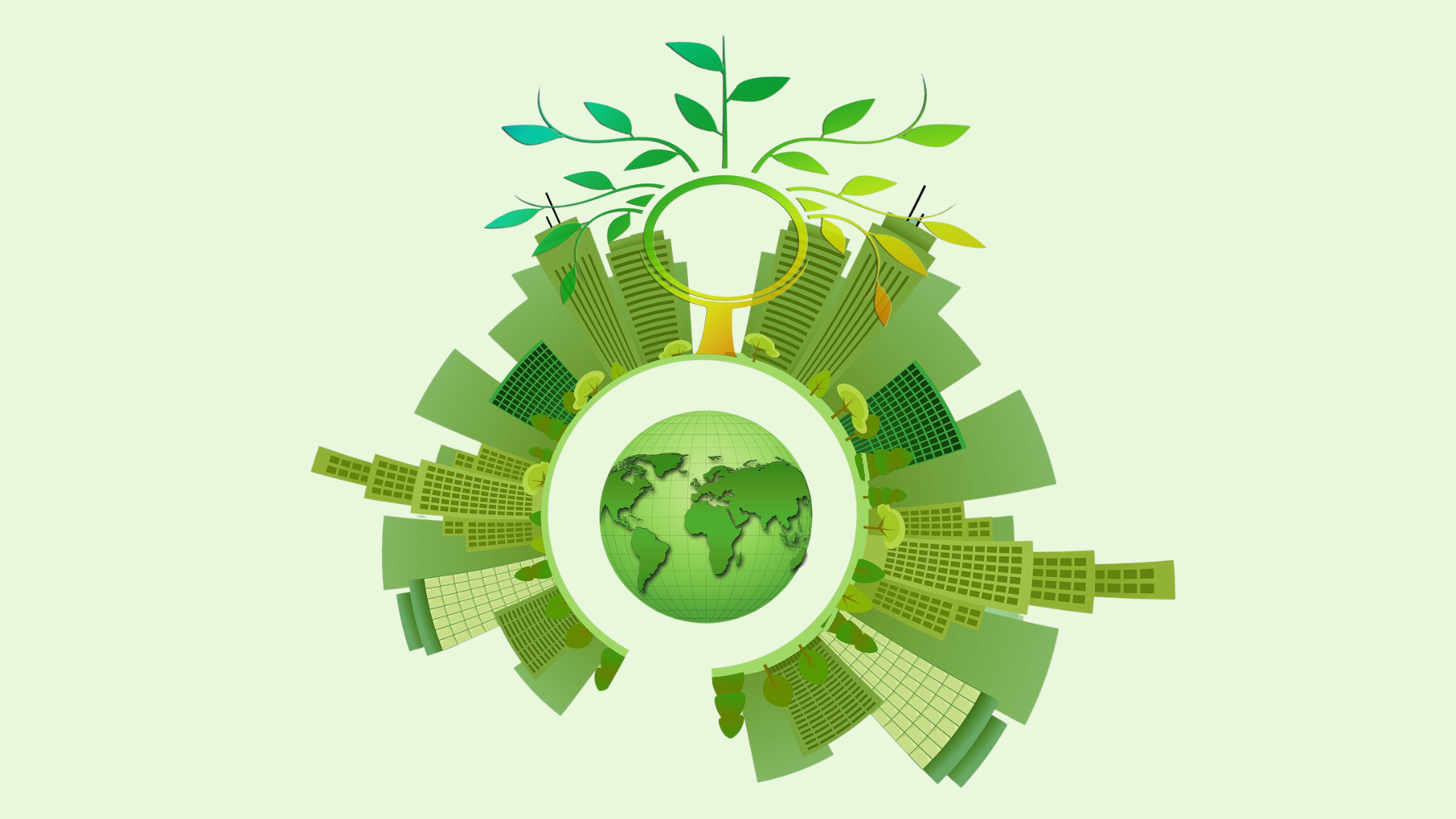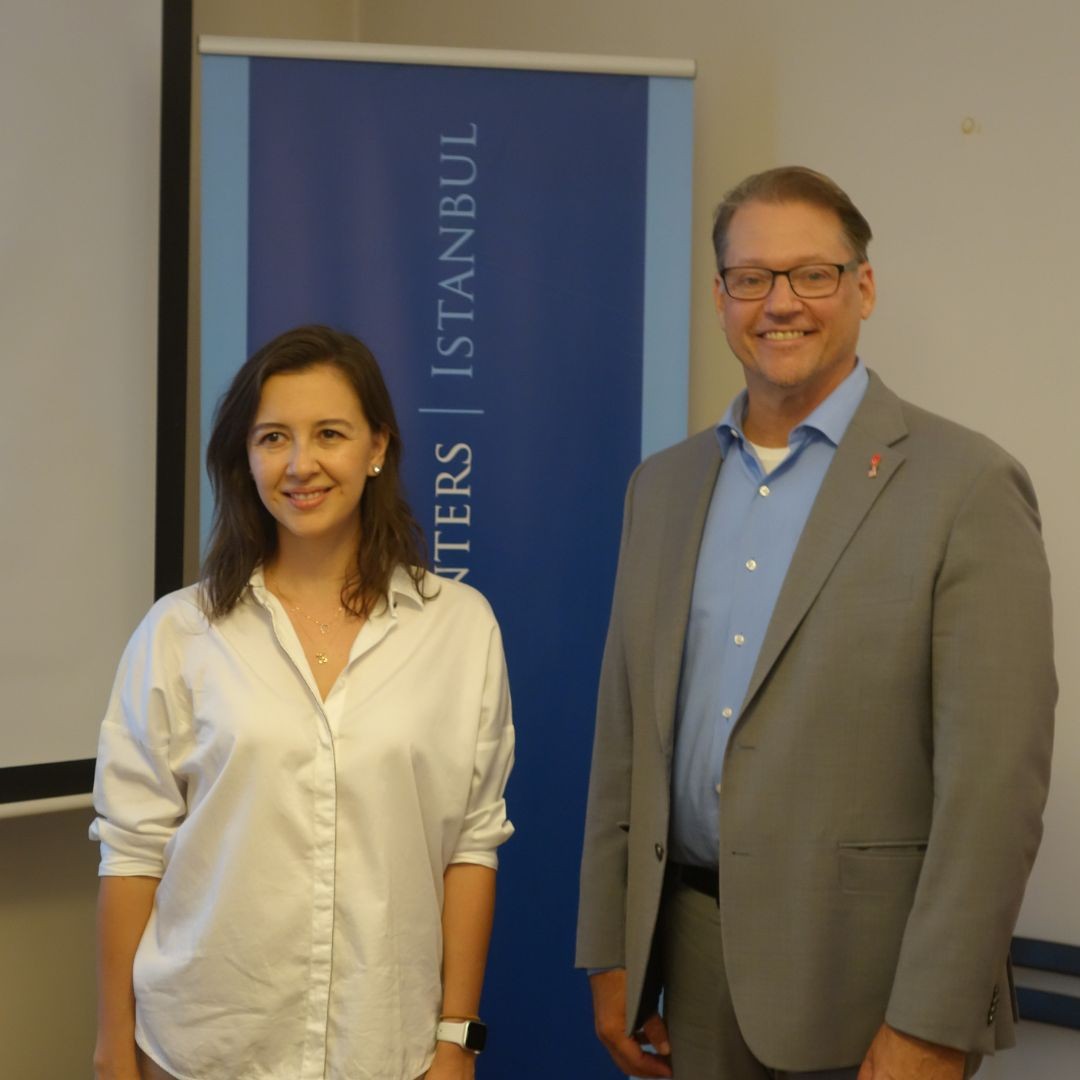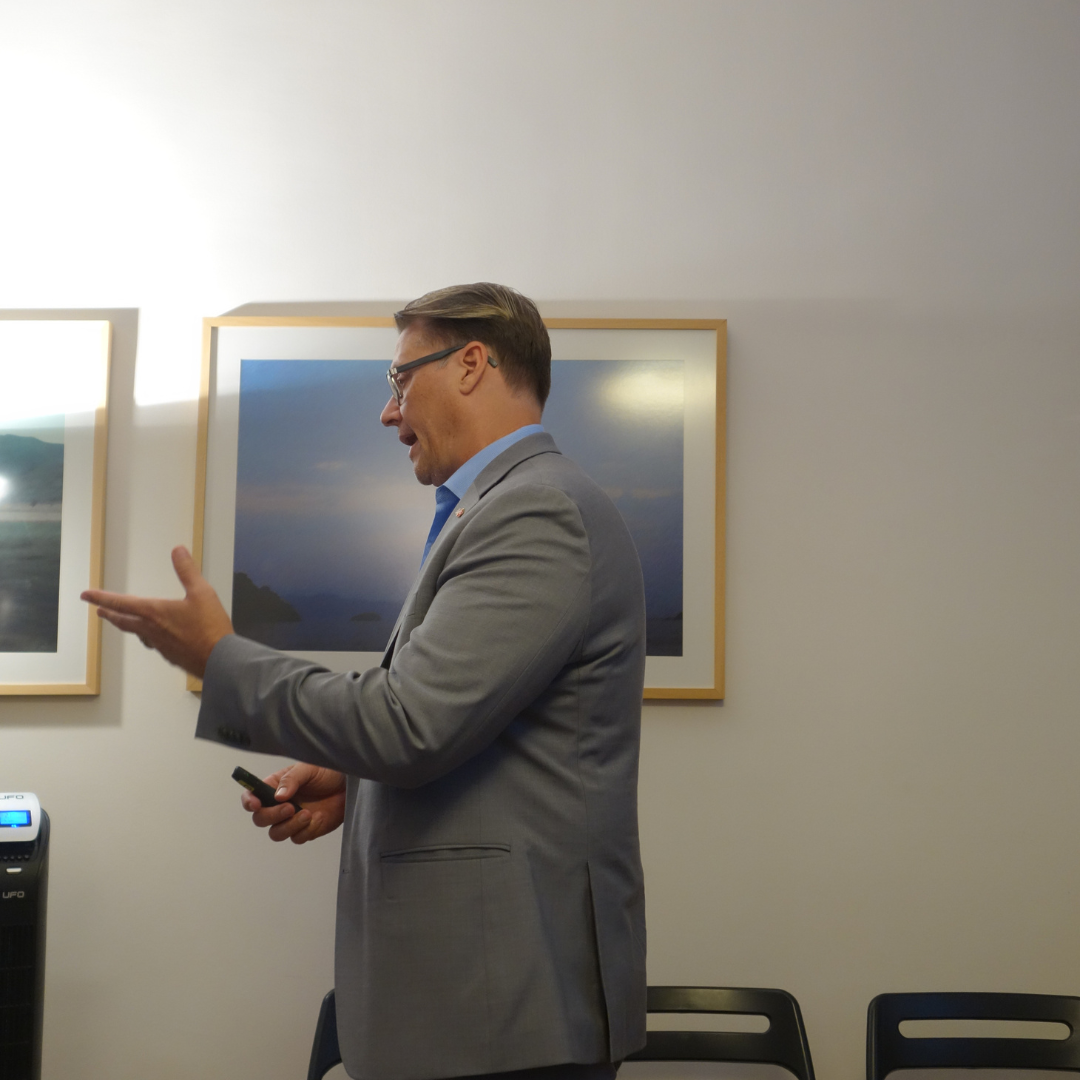Blueprint for Survival: Building Sustainable Communities for Tomorrow
Speakers provided valuable insights into urban resilience in the face of climate change and seismic threats.

The panel Urban Futurity: Navigating Climate and Seismic Resilience marked an important milestone in the discourse around urban resilience in the face of climate change and seismic threats. Hosted by Columbia Global Centers | Istanbul in collaboration with the U.S. Consulate General Istanbul, the event was aimed at fostering insightful and constructive discussions around strategies that can be employed to enhance resilience and mitigate risks associated with these twin threats that are becoming increasingly pertinent in today's world.
The panel comprised two speakers, Illya Azaroff and Ezgi Orhan, who shared their insights on the impacts of climate change and seismic activities on urban infrastructure. They also delved into the various strategies and approaches that can be adopted to address these challenges and build more resilient urban landscapes.
Illya Azaroff, an internationally recognized leader in disaster mitigation and resilient planning, brought a wealth of knowledge and experience to the table. His presentation was particularly illuminating as he discussed the importance of addressing future risks, habits, and systems that can be put in place to mitigate those risks effectively.

Azaroff underscored the significance of creating breathing room to tackle the myriad challenges we are currently facing in light of recent events. He also highlighted the alarming statistics from the recent IPCC report, which points out that a staggering 3.3 to 3.6 billion people currently live in climate hotspots. These hotspots are characterized by heat stress, water scarcity, food security issues, and flood risks. "It is imperative that we address these elements to build comprehensive resilience for the future," Azaroff emphasized.
One of the key elements Azaroff focused on during his presentation was the importance of water in building resilience. He pointed out that water is a vital resource that needs to be harnessed and utilized to benefit biodiversity and help cool the planet. With over 2 billion people worldwide lacking access to clean drinking water, addressing this issue is of utmost importance.
Furthermore, Azaroff highlighted the role of sustainable communities in building resilience. He explained that building sustainable communities requires active public engagement to define the needs and desires of the community members. "In the United States, for example, the community leads the redesign process post-disaster. Architects, engineers, and government officials then translate the ideas and needs of the community into actionable plans," he noted.

Ezgi Orhan, an associate professor in city planning, provided a valuable perspective on the Turkish case in her presentation. She focused on the root causes of urban mobility and post-disaster implications in Turkey, as well as exploring strategies for a sustainable future.
Orhan identified urban microform, or the growth of urban populations, as a significant issue faced by Turkish cities since the 1950s. This rapid urbanization has been primarily driven by rural-to-urban migration and has led to a host of problems including defects in the natural environment and ecological imbalance. Orhan pointed out that many cities in Turkey have surpassed their ecological limits and carrying capacities, which has resulted in a multitude of challenges that need to be addressed.
She also touched on the importance of spatial planning as a crucial tool for managing disasters. "Spatial planning can operate at different scales, respond to various hazard types, and facilitate population distribution, building design, and transportation possibilities," she explained. Furthermore, Orhan emphasized the need for strategic documents, action plans, and government systems that support spatial planning in order to develop resilient and sustainable environments.
In conclusion, the insights shared by Azaroff and Orhan at the "Urban Futurity: Navigating Climate and Seismic Resilience" event shed light on the critical need for innovative planning, engineering, and policy interventions to bolster urban infrastructure's ability to withstand the challenges posed by climate change and seismic events. By addressing the impacts of these twin threats, we can pave the way for the development of sustainable urban landscapes that are resilient in the face of adversity.
The discussions and presentations at the event served as a valuable reminder that the time for action is now. We must actively work towards building more resilient urban landscapes that can withstand the impacts of climate change and seismic threats. This will require a collaborative effort from various stakeholders, including governments, communities, urban planners, and engineers, to develop innovative solutions that can help mitigate risks and enhance resilience.